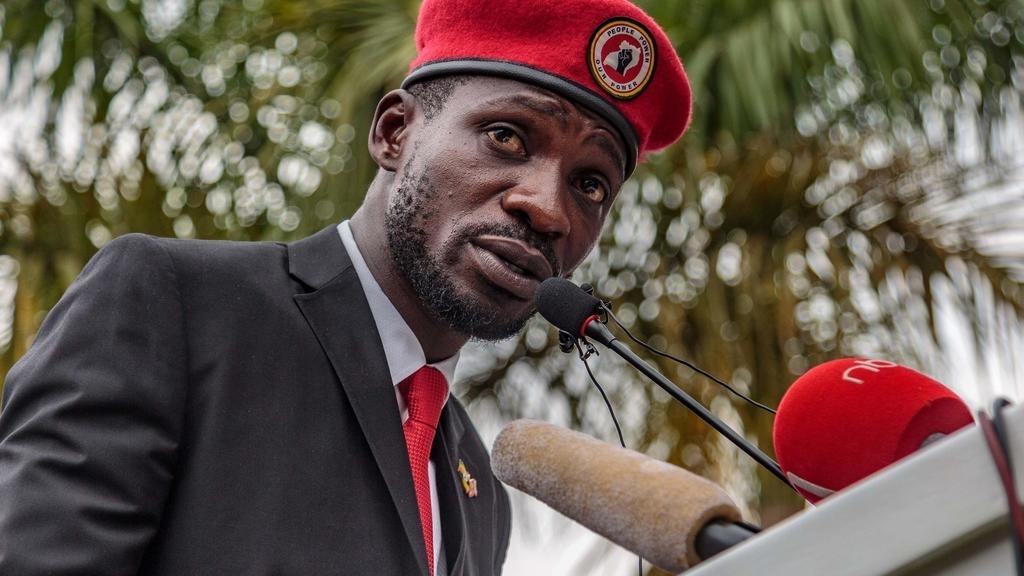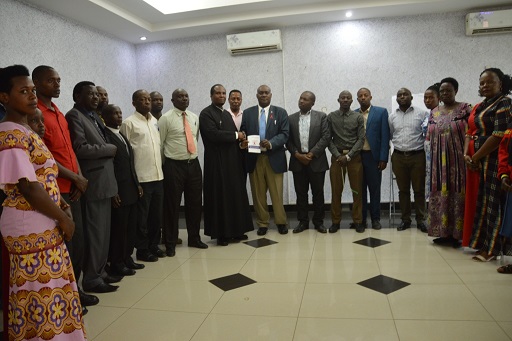
KAMPALA – Huawei Technologies Co., a Chinese telecommunications company, helped Ugandan senior security officials to hack into the phone of Kyadondo East MP Robert Kyagulanyi, aka Bobi Wine, a report has revealed.
According to a report in the Wall Street Journal, Huawei employees provided Ugandan security officers with software that helped access Bobi Wine’s WhatsApp chat group, named Firebase crew.
The incident is said to have taken place last year after Bobi Wine returned from the US where he had gone for treatment after the violence preceding the Arua Municipality by-elections.
The security agencies, scared about Bobi Wine after he received backing from the US government, are said to have embarked on spying on the artiste-cum politician to understand his motives.
The Wall Street Journal adds that a group of six intelligence officers were given strict orders to intercept Bobi Wine encrypted communications such as WhatsApp and Skype. The police is said to have used the broad powers of a 2010 law that gives the government the ability “to secure its multidimensional interests.”
The Wall Street Journal adds that the security the team, based on the third floor of the capital’s police headquarters, spent days trying to penetrate Mr. Wine’s WhatsApp and Skype communications using spyware, but failed. Then they asked for help from the staff working in their offices from Huawei, Uganda’s top digital supplier.
The Huawei technicians worked for two days and helped us puncture through,” one senior officer at the surveillance unit is quoted as saying by the Wall Street Journal.
The Huawei engineers, used the spyware to penetrate Mr. Wine’s WhatsApp chat group, named Firebase crew, which helped police to scupper his plans to organize street rallies. Bobi Wine was later arrested for holding a protest against social media tax.
However, Huawei denied the allegations, with the company spokesman, saying they have “never been engaged in ‘hacking’ activities”. “Huawei rejects completely these unfounded and inaccurate allegations against our business operations. Our internal investigation shows clearly that Huawei and its employees have not been engaged in any of the activities alleged. We have neither the contracts, nor the capabilities, to do so,” the statement adds.
However, the Wall Street Journal adds that technicians from the Chinese powerhouse have in other cases personally helped African governments spy on their political opponents.
In Zambia, according to senior security officials, Huawei technicians helped the government access the phones and Facebook pages of a team of opposition bloggers running a pro-opposition news site, which had repeatedly criticized President Edgar Lungu. The senior security officials identified by name two Huawei experts based in a cyber-surveillance unit in the offices of Zambia’s telecom regulator who pinpointed the bloggers’ locations and were in constant contact with police units deployed to arrest them in the northwestern city of Solwezi.
The ruling Patriotic Front posted on its Facebook page in April that police officers working with “Chinese experts at Huawei have managed to track” and arrest the bloggers. The party’s spokesman confirmed to the Journal that the case was handled by the Cybercrime Crack Squad, the unit at the telecom regulator.
Since 2012 the U.S. government has accused Huawei—the world’s largest maker of telecom equipment and the second-largest manufacturer of smartphones—of being a potential tool for the Chinese government to spy abroad, after decades of alleged corporate espionage by state-backed Chinese actors. Huawei has forcefully denied those charges.





